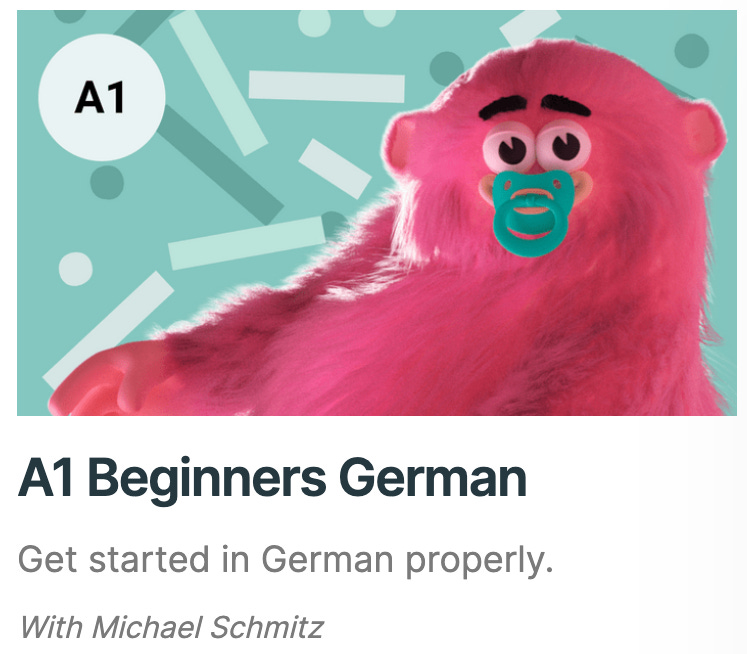Progress Update: week one
All things-Pope in Spanish, re-discovering my German course, and taking a lunch time vocab walk.
German Updates
This week I returned to a German course I originally started in the first feverish months of the pandemic lockdown. It’s called Smarter German, and opening it up again brings back some strange memories of those days… But it’s interesting to see how much I remember!
Some features of the course that make it helpful for my dyslexic brain:
It’s based around a murder mystery, and each level you work on a section of text.
There are listening exercises, text-analyses, dictation exercises, speaking exercises, and so on.
The approach starts with real language (i.e. with a text that has some ‘real world’ meaning and interest), rather than starting with abstract grammar memorization or simple phrases. This makes it more interesting and engaging, and gives my dyslexic brain something to latch the concepts onto.
The instructor is super enthusiastic without being wacky or patronizing.
When doing a text analysis he breaks down why you might go from this word in German to this word in English, or vice versa. Rather than just giving you a list of words to memorize. I find this helpful because, again, my brain has something to latch onto.
It’s still early days—this week I am still going over material I already studied back in 2020, so it’s easier. But I will update when it (presumably) gets harder.
I also took myself on a walk one lunch time, listening to a very old-school listen-and-repeat German course from Deutsche Welle, a German media company. (Link to the podcast version.)
There is something almost soothingly simple about this kind of approach. They say a phrase, you repeat it. They say another phrase, you repeat that one. And so on.
Will I remember any of it? Memory is interesting. I have a feeling that the embodied experience of walking in new shoes-being in the sunshine on a spring day-thinking about work will be as important to laying down the memories of the phrases as the phrases themselves. But that’s probably requires a longer blog post.
Spanish Updates
I listen to news podcasts/radio shows in Spanish, often from Europe, to practice listening and also because I appreciate getting non-US centric perspectives on the world news! This week the news has been all about the new Pope… so lots of magazine-style pieces on the role of the Catholic church in different countries.
I listen while driving, walking around the grocery store, or playing video games. It’s easier for me to concentrate on listening when I’m doing another physical task—a division of cognitive/embodied concentration that’s always been my most effective study skill.
My two go to news podcasts from Europe are Hoy en EL PAÍS and En Primera Plana from RFI. The latter is actually from France but in Spanish, so it’s editorial approach is more broadly European rather than just focused on one country.
I used to love El Washington Post, the daily Spanish language podcast from The Washington Post, that was hosted by journalists based in Madrid, Washington D.C., and Bogota. It was very sadly shut down in Dec 2022. I haven’t found anything to replace it yet.
For Latin America I listen to a couple of different podcasts. There is Noticias de America, but the episodes are very short (approx 2 mins). El Cafe de Hoy, a podcast from Colombia and Diálogo en Panamericana from Bolivia.
Reflection on Spanish progress
My Spanish listening skills are at a level where I can comfortably follow radio or documentary programs from Spain or different Latin American countries at full speed.
I learnt mostly Latin American Spanish but am getting used to the accent from Spain as I listen to more European media.
Are my comprehension skills as sharp in face-to-face conversation, however? I’m not so sure.
I suspect the passive nature of listening to a podcast makes it easier to concentrate on what is being said. It’s easy to give it your full attention. But a conversation requires splitting that attention.
You not only have to listen to the words being said, but also manage the non-verbal communication: interpreting your partner’s facial expressions & body language, and managing your own. All the while thinking up a response and preparing how to say it correctly.



